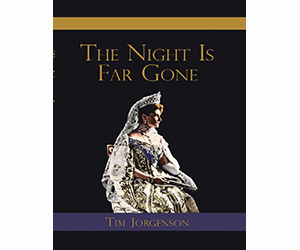Margaret Sanger believed some people were “human weeds,” “reckless breeders” and “morons” who never should have been born.
With those anti-human attitudes, she founded Planned Parenthood, the nation’s largest abortion chain, which reaps in billion-dollar revenues while aborting 345,000 unborn babies each year. It does not hide the fact that it targets poor and minority women for abortions, too.
But, while rioters are defacing and destroying statues of U.S. leaders in the name of ending racism, Sanger’s statue still has a place of honor in The Smithsonian National Portrait Gallery in Washington, D.C.
“As our nation struggles to address racial injustice, it is unconscionable that an avowed racist and eugenicist is featured so prominently,” U.S. Rep. Russ Fulcher wrote this week in a letter to the Honorable Secretary Lonnie G. Bunch III, the head of the Smithsonian Institution.
Fulcher’s letter is part of a years-long effort, led by black pro-life leaders, to have Sanger’s statue removed from the national museum. With the renewed focus on ending racism, the Idaho congressman said it is time for the Smithsonian to act.
“Ms. Sanger’s writings and teachings stand in sharp contrast to America’s founding principles which embrace equality, justice and human rights for all,” he wrote, supporting a campaign by Stanton Public Policy Center calling for the removal of her statue.
A well-known eugenicist, Sanger wrote and spoke frequently about how certain groups of human beings were less valuable than others. She described them as “human weeds,” “reckless breeders” and “spawning … human beings who never should have been born” in her book “Pivot of Civilization.”
She also wrote about getting rid of people with diseases and disabilities through sterilization and segregation, describing these “morons” as “a dead weight of human waste.”
“The main objects of the Population Congress would be to apply a stern and rigid policy of sterilization and segregation to that grade of population whose progeny is tainted, or whose inheritance is such that objectionable traits may be transmitted to offspring[;] to give certain dysgenic groups in our population their choice of segregation or sterilization,” Sanger wrote.
Follow LifeNews on the Parler social media network for the latest pro-life news!
And in a 1939 letter to a friend, she wrote, “We do not want word to go out that we want to exterminate the Negro population.” She also spoke to a KKK gathering in 1926.
Sanger founded Planned Parenthood 100 years ago, and since abortion became legal nation-wide in 1973, an estimated 20 million unborn black babies have been aborted in America.
But for years, The Smithsonian has ignored Sanger’s discriminatory views and kept a bust of her in a place of honor in its “Struggle for Justice” exhibit, which is supposed to honor people who were “champions of justice.”
Sanger was a not a woman of honor or justice. She fought for injustice and advocated for discrimination – the very opposite of the values that most Americans cherish.
These values led Americans to be outraged because of the inhumane treatment of one man, George Floyd, who died after a police officer knelt on his neck for a long period of time while Floyd pleaded that he could not breathe.
How much more should Americans be outraged by Sanger’s discriminatory, anti-life views, which led to the killings of more than 62 million unborn babies in abortions. Today, Planned Parenthood leaders have no hesitation to say publicly that “EVERY reason to have an abortion is a valid reason,” including for sex-selection, race and disabilities like Down syndrome.
It’s time for the Smithsonian to stop honoring the person who planted these beliefs into an organization that continues to abort 247 black unborn babies every single day. It’s time for it to reject Sanger and, in doing so, reject a movement that wants to expand abortions to minority communities even though, according to New York City health statistics, more African American babies already are aborted in the city than are born each year.
As Brandi Swindell, founder and CEO of Stanton Public Policy Center, said, “During these challenging times, it is critical the National Portrait Gallery provide us with examples of heroes who offer hope and courage which inspire each of us to work for a nation where all are treated with dignity and equality.”
And Margaret Sanger is no heroine.








